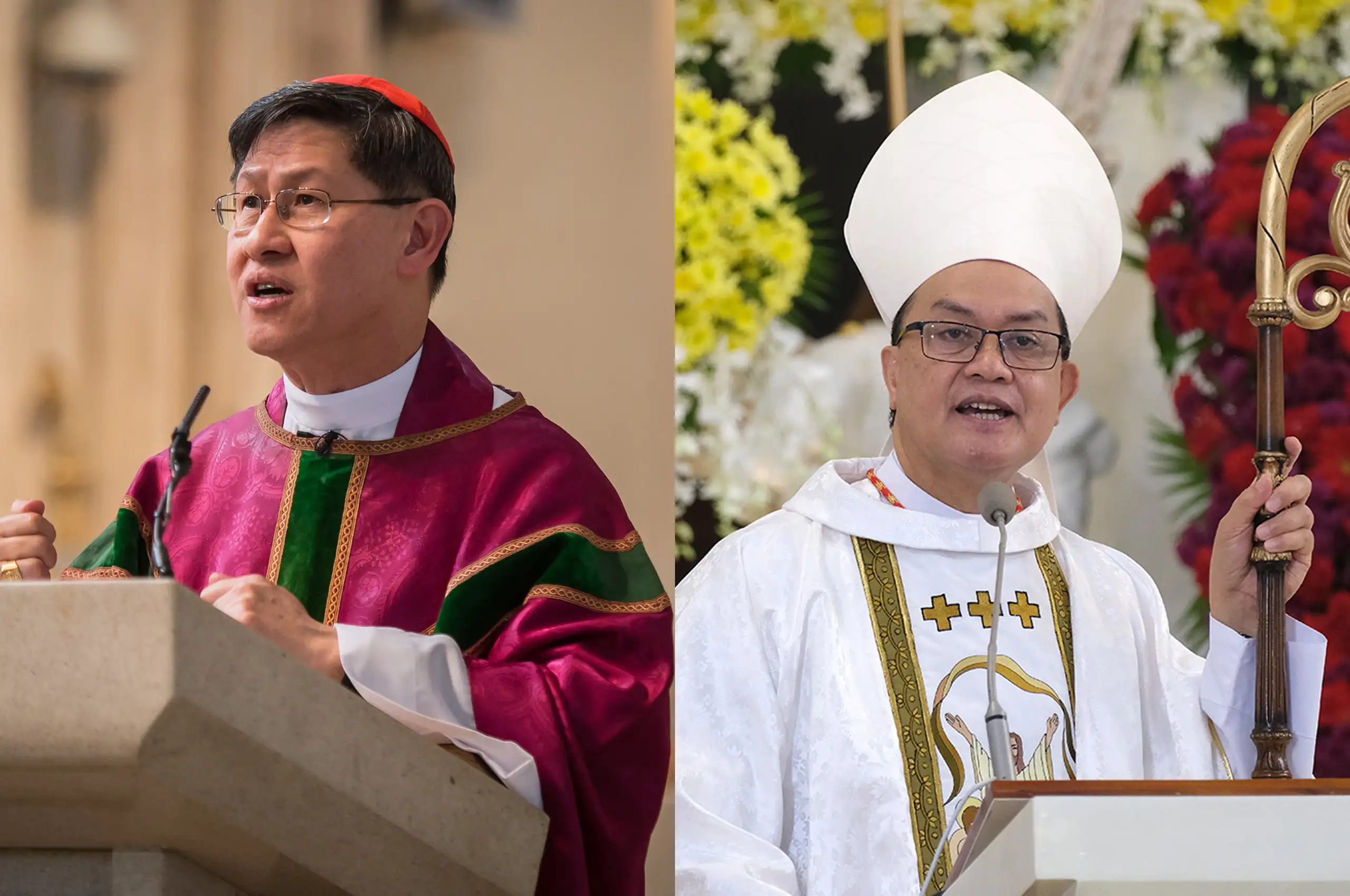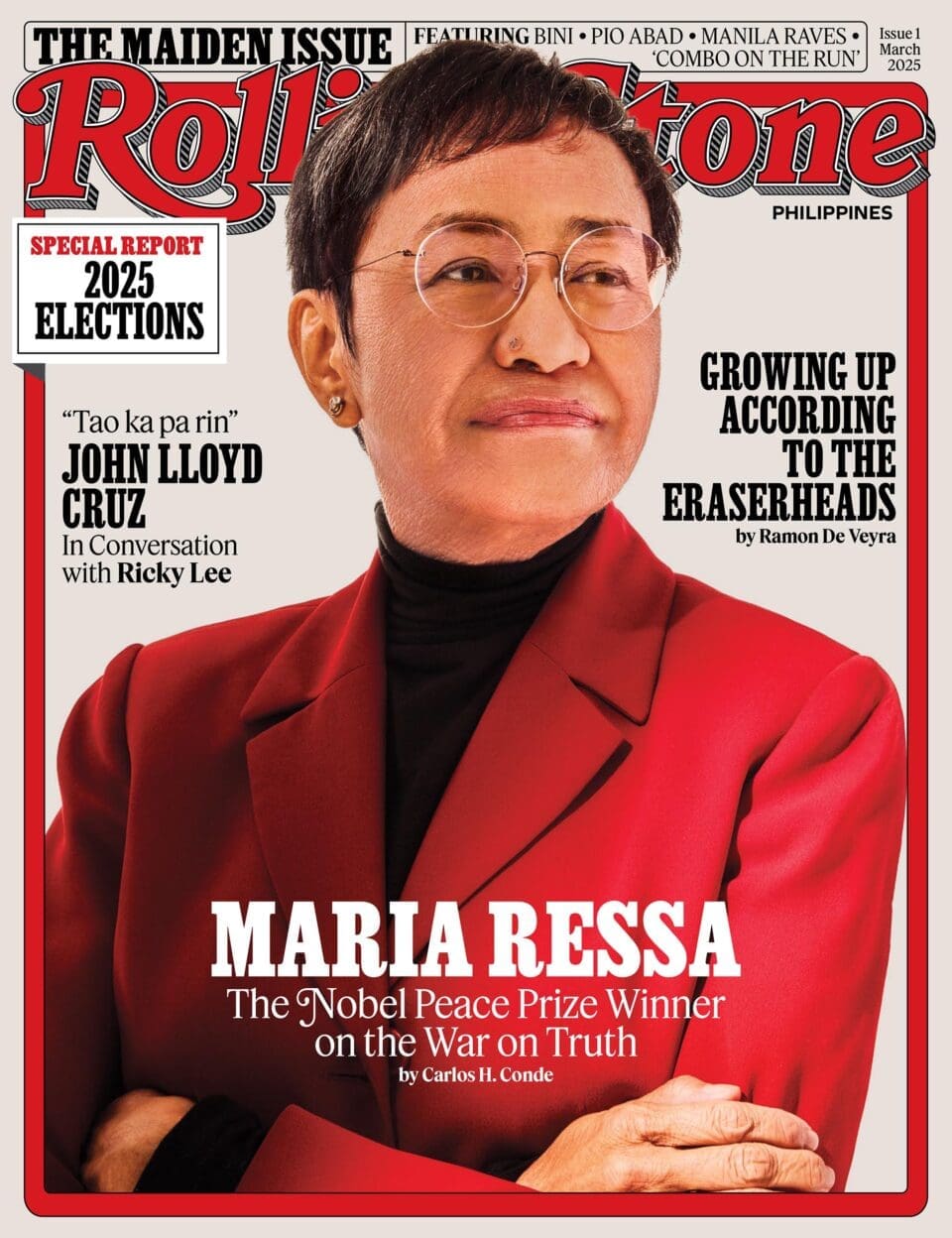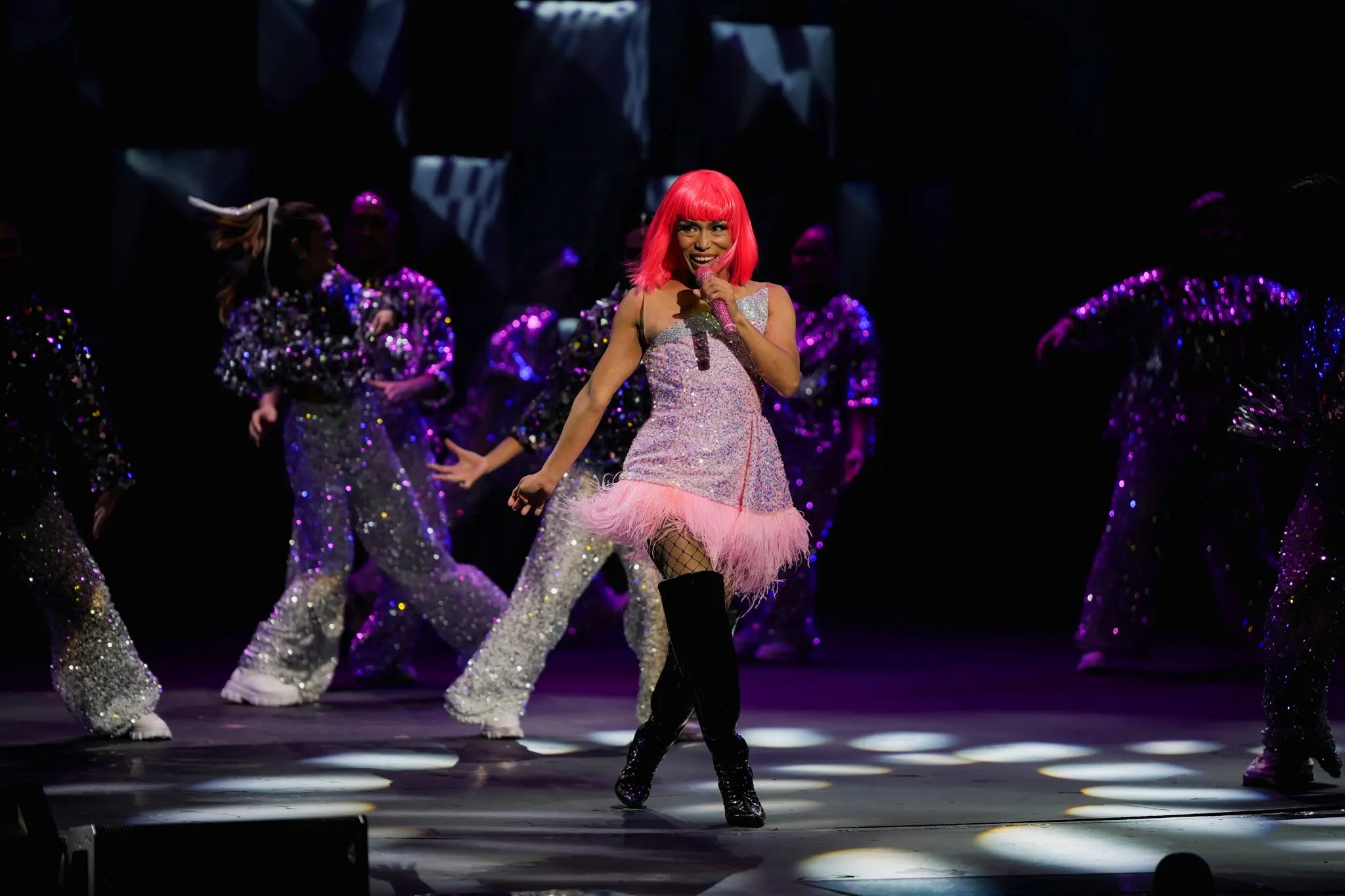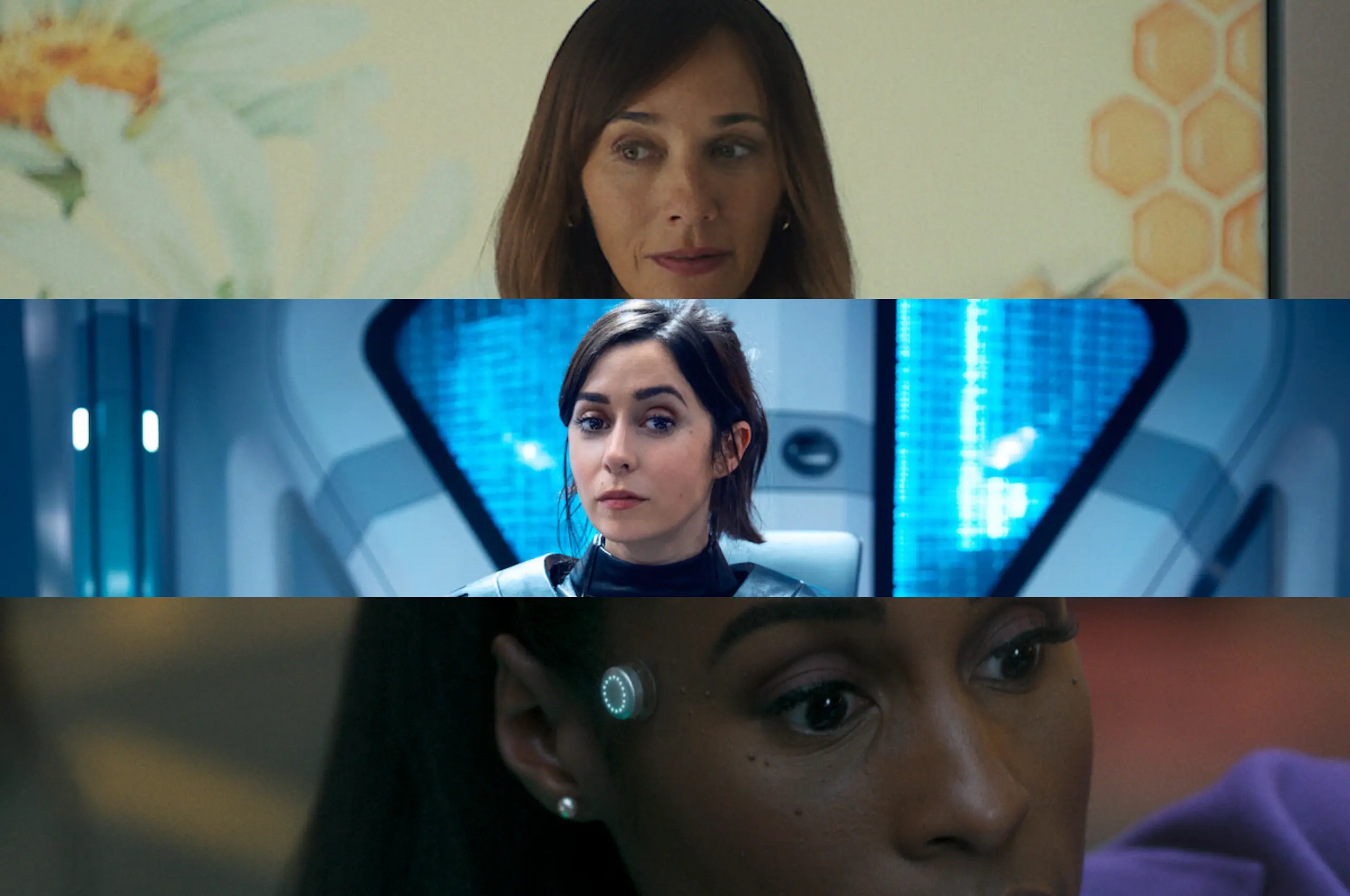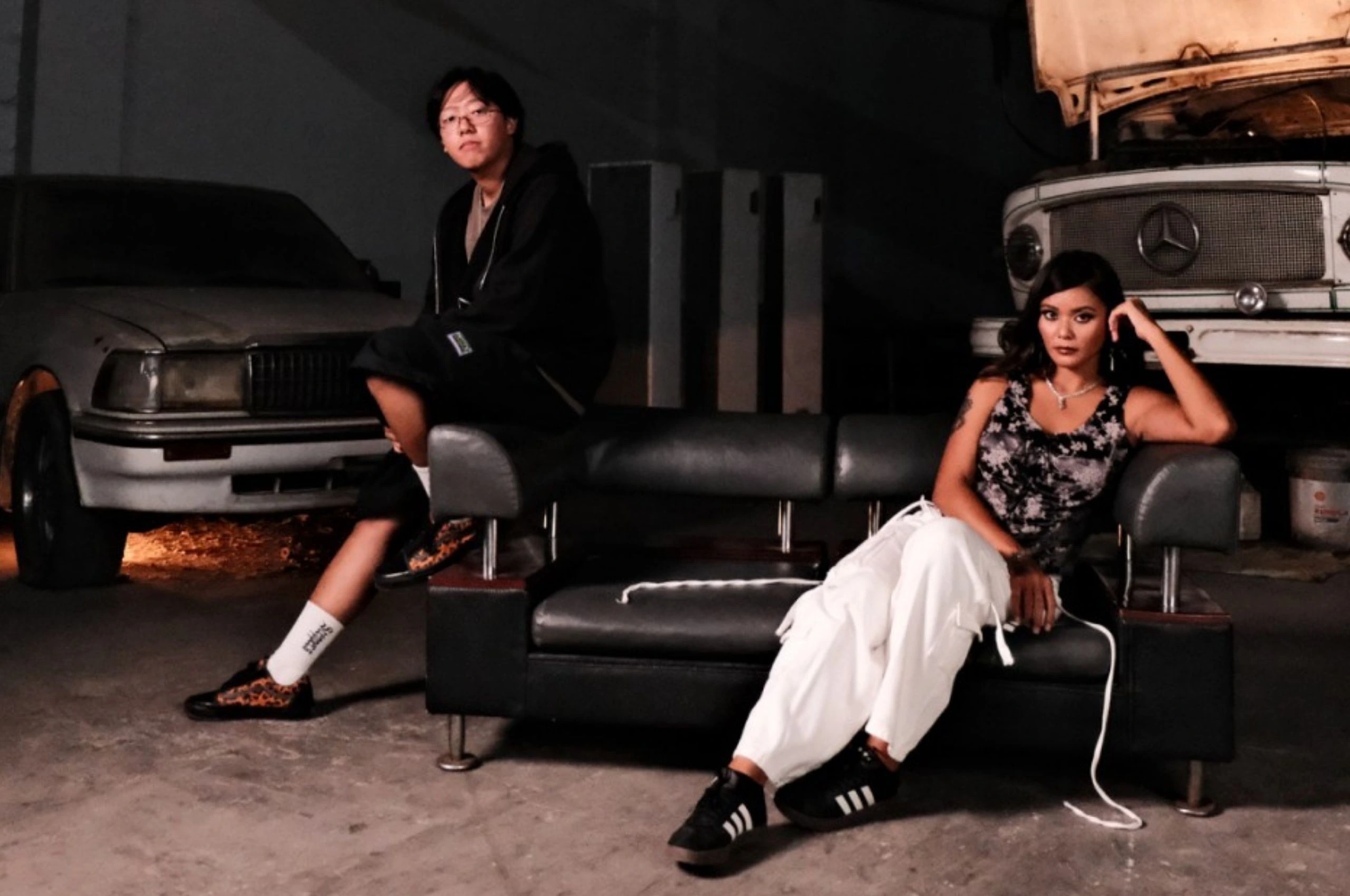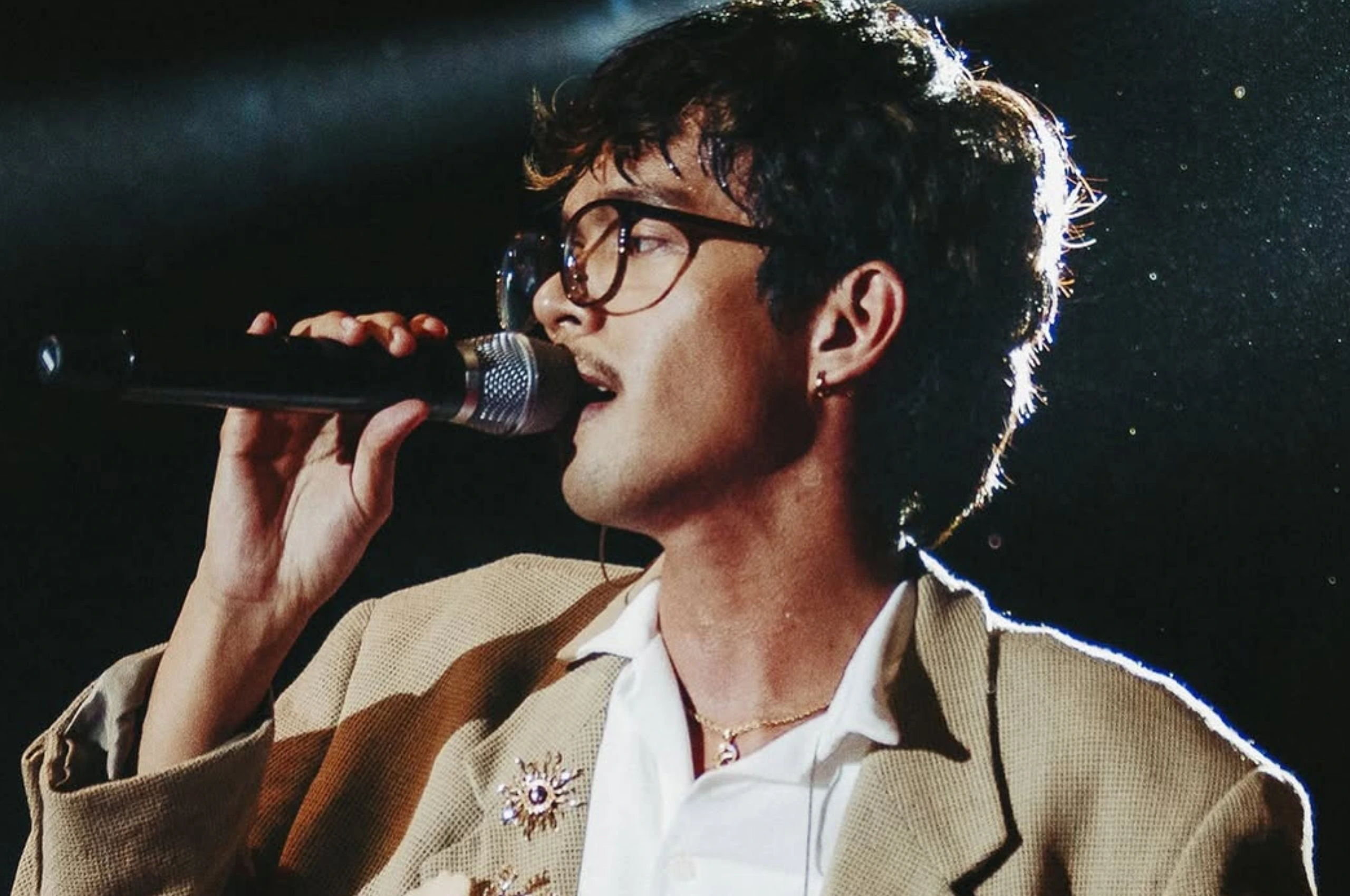In the more than 500 years of Catholicism in the Philippines, a Spanish pope has never taken a seat in the Vatican, which may come as a surprise to Filipinos.
The last Spanish Pope was Alexander VI – the infamous Rodrigo Borgia – who died by poison in 1503. 18 years later, Magellan waded into our archipelago, and the first Catholic Mass was celebrated in the Philippines. Now, as the Catholic Church settles into conclave in 2025, the chatter is clear that there are higher chances of electing a Filipino pope than a Spanish one.
As a Filipino Catholic who has navigated the tension of celebrating a faith imposed on us by the colonizer’s sword (after all, our Catholicism was molded by the Spanish, rather than the Roman, variety), the ironic prospect of the first Filipino pope in the Vatican is redemptive. It would redefine the Church’s place in our own history, and in the 2000-year history of the Catholic Church itself.
Two Coins in the Fountain
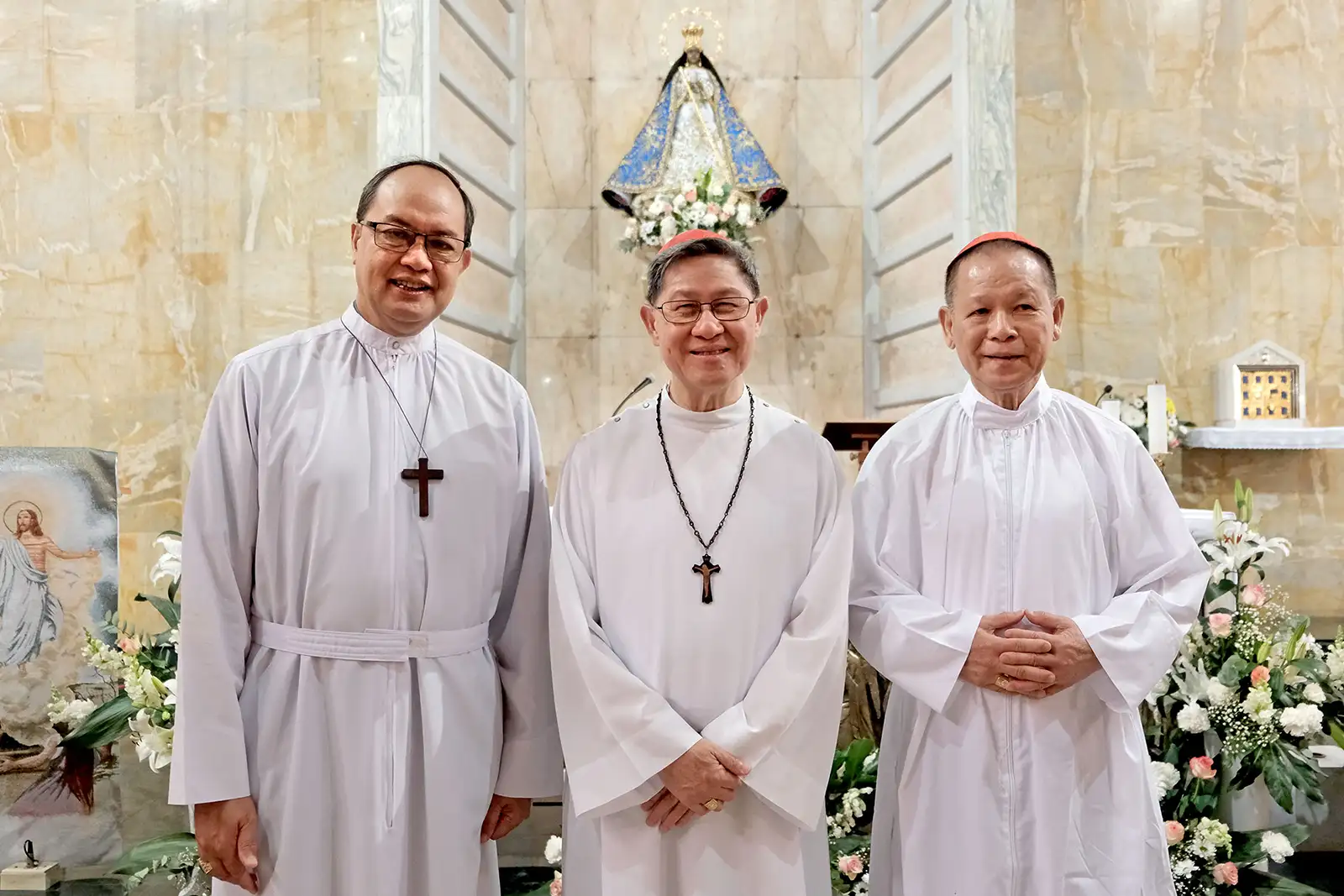
The New York Times has pegged for two potential Filipino popes for this conclave: Cardinal Luis Antonio “Chito” Tagle, 67, and Pablo Virgilio “Ambo” David, 66. (There is a third Filipino in the conclave, Cardinal Jose Advincula. However, he isn’t seen by many analysts as among the top candidates, being “a low-key figure more focused on the grassroots than on national politics,” according to Rappler.)
Tagle has been touted as a possible Pope as early as the 2013 conclave that elected Pope Francis. In 2025, Tagle (now rebranded as the “Asian Francis”) has been propelled to the status of frontrunner, whether by the mainstream press, Vatican watchers, or the cryptocurrency-based prediction markets.
The notion of Tagle as another charismatic progressive Pope has spooked right-wing conservatives, blasting him on social media that Tagle sings heresies (albeit well), dances with idols, and is too musical to be Papa. The Filipino laity should take offense at this attack, directed as it is to how we have practiced our faith for centuries without need of permission from Rome.
The Pasyon pabasa – the original street karaoke party that lasts well into the night – is one of our flashy Catholic traditions, along with religious processions like the Translacion of the Black Nazarene and the Santacruzan with its radically de-aged Queen Helena; there’s also the annual Senakulo, a religious play, with Filipino actor Ben David hanging from a tree. In our Catholicism, the solemn tales handed to us by the friars were transformed from rituals into celebrations that, while a touch performative, give space for our spontaneous joy. We did not need to wait for Vatican II to translate our Roman Catholic faith into a language of our own.
We relate to a singing and dancing Filipino Catholic like Tagle, but also a Filipino tito who is fun to be around with. His charisma is built on joyvand charm. His online presence barely registers how magnetic a person he is when celebrating mass and delivering homilies in Tagalog. It is difficult for him to lose an audience after making them laugh a number of times. Laughter also eases the sometimes difficult message of Christianity: loving your enemies as you love yourself being counterintuitive, while loving your neighbors requires a lot of bother that does not easily fit in the timeline of busy lives. One can imagine the impact on the English-speaking world of a Pope who speaks English with near-native fluency.
What We Can Expect
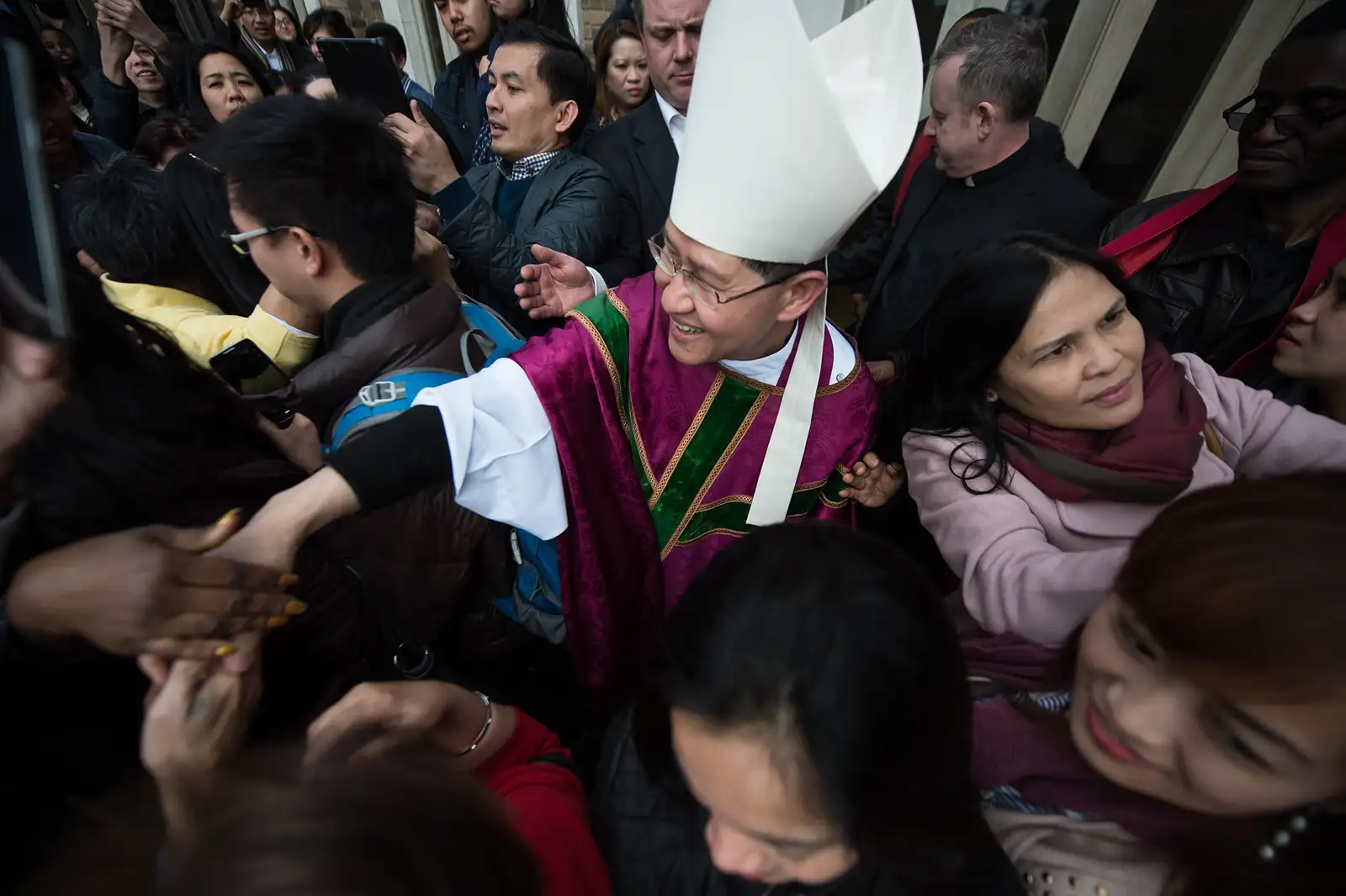
Cardinal Tagle celebrated Mass in St George Cathedral in Southwark. Photo from Mazur/catholicnewsorg.uk (via Catholic Church England and Wales/Flickr)
Will Tagle as Pope fit these times? It is not clear yet what the voting cardinals prescribe as the needs of these times.
If the discernment is that these times are too tempestuous and seductive that the faithful Catholic need to retreat into an enclave where they can freely practice faith without interference, then Tagle (or those cardinals touted as progressive) will not fit. If the sentiment is that these times demand an uncompromising Amos-like prophet who will denounce injustice without hesitation or political consideration, then Tagle will not fit.
One of the criticisms lodged against Tagle is his comparative silence to the spate of extrajudicial killings at the height of former President Rodrigo Duterte’s drug war. Such criticisms harken back to Pope Francis’ own responses when — still as Jorge Mario Bergoglio, the head of the Argentinian Jesuits — he saw numerous enforced disappearances and killings during the rule of the Argentine military junta. Only years later did Bergoglio’s behind-the-scenes interventions to protect targeted dissidents become well-known.
These acts, however helpful, pale in the popular imagination when contrasted to murdered clerics such as Bishop-Saints Oscar Romero and Enrique Angelelli, whose opposition towards Latin American military dictators during the 1970s came at the cost of their lives. In times of oppression, the courageous among the faithful expected their bravery would be matched, if not surpassed, by their own Church leaders who may not see their own martyrdom as ultimately helpful. This dilemma has bedeviled Church leaders since Roman emperor Constantine The Great established Christianity away from secular leprosy.
Tagle would mark all crosses of those who see a Church that needs to be more inspiring to the already faithful, but also to the wider world. In that sense, Tagle as Pope promises to be former Polish Pope John Paul II at his most useful, before Parkinson’s sapped him; maybe less conservative in core beliefs, but with the same theatrical instincts as Paul, who was a former playwright, and a willingness to engage with a world where allegiance to the Catholic faith is shifting. A Pope who, like Tagle, speaks with the cadences of the best of evangelical preachers can stem the erosion. Does the world need a superstar Pope? It has already been posited in popular culture that the man at the center of the faith, Jesus Christ, kind of was one.
If the conclave does see bravery against the corruption of these times as the foremost need, then Cardinal David should emerge as a very viable option. His public denunciations of Duterte were more unequivocal, to the point that he faced persecution through sedition and libel charges that was later dropped. His unhesitating denunciation of U.S. President Donald Trump’s AI depiction of himself as the Pope, long before other Church leaders did so, reflects a fighting instinct that the curia may try to restrain.
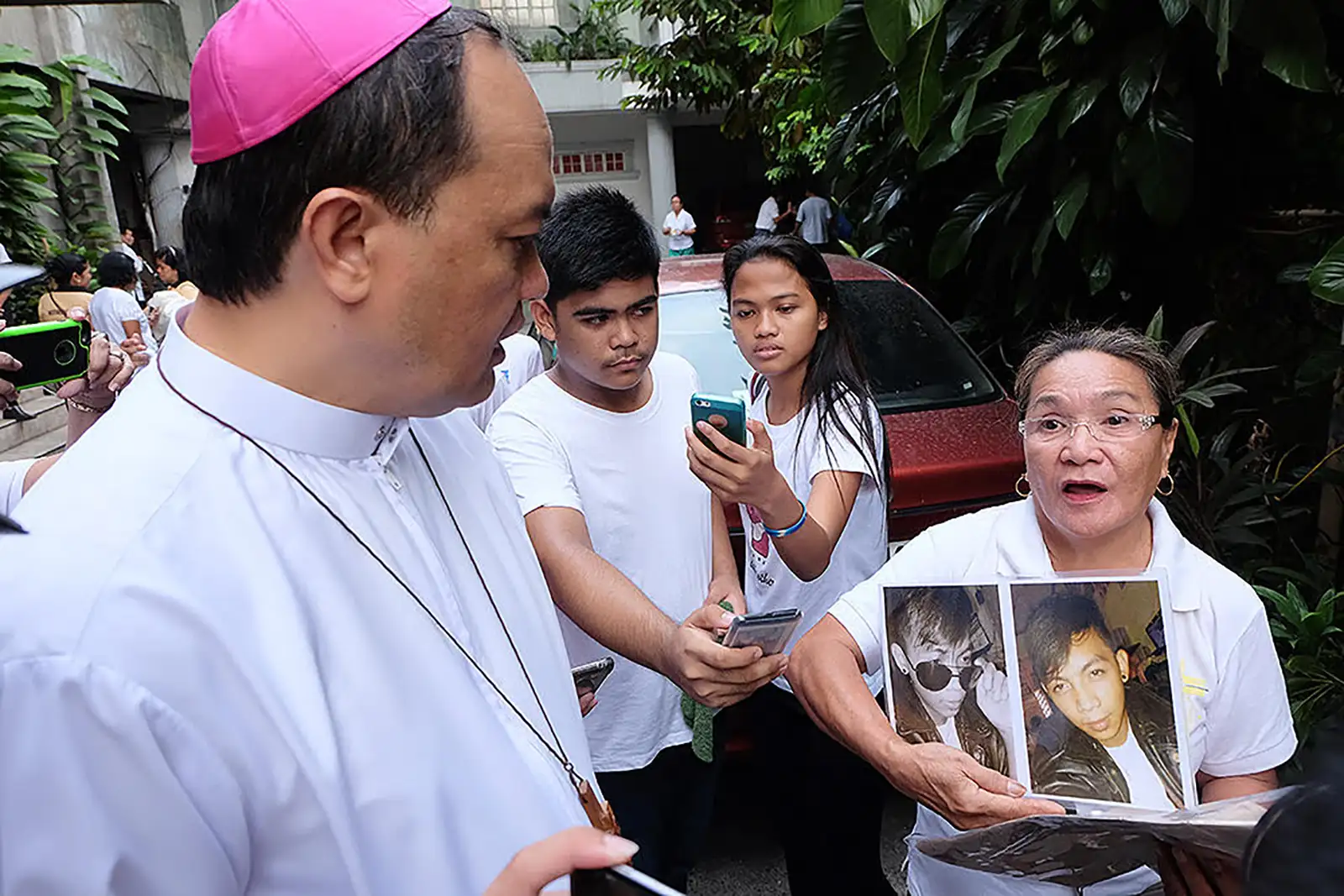
The ballots to be burned will ultimately be cast by those whose focus is shaped by their commitment to God at the expense of every other offering of life. That sacrifice and devotion has not always resulted in wisdom, if papal choices are to be considered, but a bad Pope would have mattered less in a world where few Catholics even knew who the Pope was at a given year. And this is the year where Filipinos have kababayans who are viable Popes, individuals who have the capacity to be good Popes for they are known to be good men.
Whoever becomes Pope will still have to face what is proving to be the defining crisis of the Church of this generation: the child sexual abuse scandals, and the legalistic maneuvers used to defend its credibly accused priests. Filipino Catholics like to pretend that our Church, infused with the goodwill of Pinoys, has been excluded from the pedophilia scandal; it has not. The Catholic Church cannot begin to speak with any moral authority on any issue if its instincts are to protect abusive priests rather than the victimized children.
If a Filipino pope cannot guarantee a more-than-zealous approach to ensure the safety of children who look to the Church for solace, my thoughts and prayers would fly elsewhere.
